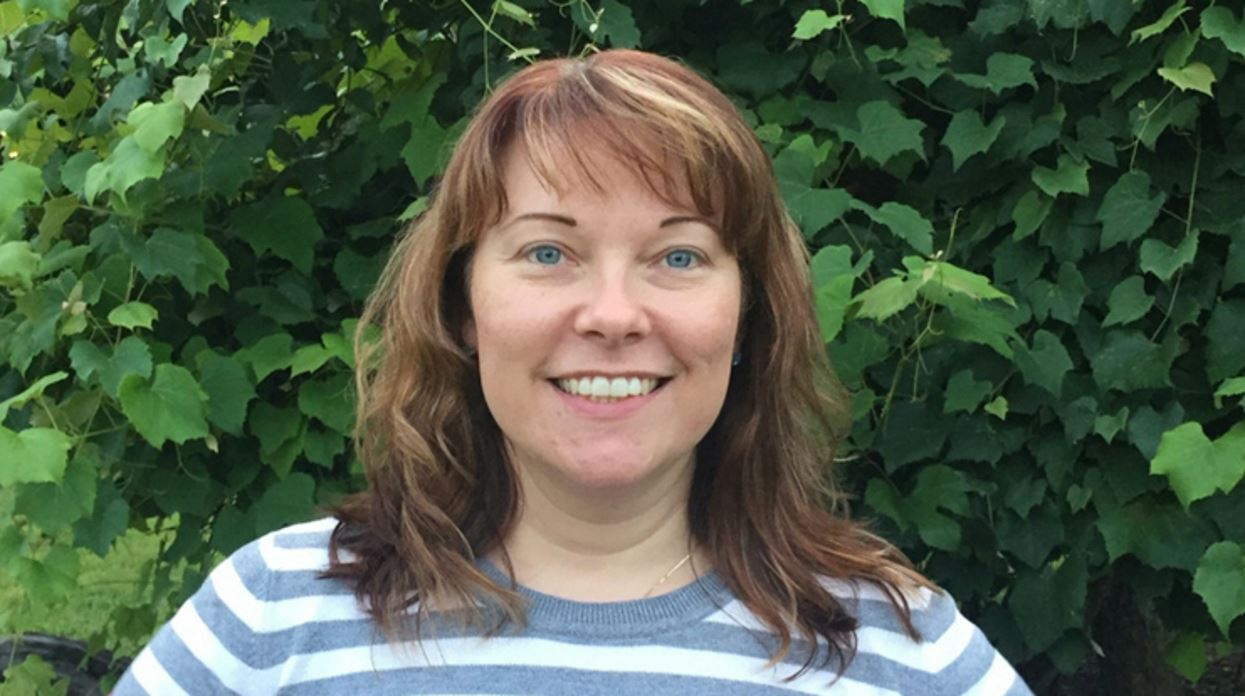
DHS Alumna Develops Sensor To Detect Vaping in Schools

Loucinda Bistany was looking to make a mid-career change when she decided to enroll in the Doctor of Health Sciences program at Massachusetts College of Pharmacy and Health Sciences (MCPHS). Coming from a job at a large medical diagnostic device company, she wanted to transition to a healthcare-focused business venture.
With that goal in mind, Bistany co-founded a startup called Zeptive, Inc. with two former colleagues, where she is the Chief Technology Officer focusing on combining sensor technologies to detect aerosol from electronic nicotine delivery systems (ENDS) or electronic cigarettes. "The idea for the sensor has home grown roots in that each founding team member has children that at one time or another were confronted with vaping at school or during school activities," says Bistany. "Our goal is to use our unique backgrounds in sensor development to build a sensor that would detect and prevent vaping in the schools. We'd like to establish our schools as vape-free zones and the first step is to detect the problem."
Vaping among adolescents has become a significant problem across the U.S. According to the Surgeon General's office, e-cigarette use has grown dramatically in the last five years and the use of e-cigarettes is higher among high school students than adults. In 2018, 1 in 5 high school students reported using e-cigarettes in the past month.
For Bistany and her business partners, they hope to build a detection system for e-cigarettes for zero-tolerance environments such as middle schools and secondary schools. "We are combining multiple types of sensors used in other applications with custom detection algorithms to build a vape detection system to combat the vaping epidemic among adolescents," she told us. "Vaping in schools is at an all-time high and school administrators are struggling to find an effective way to detect and stop vaping. Our sensors can be easily installed and placed anywhere schools need sensors to combat the problem. The sensors send a text or email message to administrators telling them where vaping is happening in real time so they can respond. Or, if administrators choose, the sensor will emit an audible alarm signaling detection."
While in the Doctor of Health Sciences program, Bistany found that the flexibility of the online program afforded her the opportunity to start her own consulting business while the startup gets funding. "I'm excited at the new prospects both companies will bring," she tells us.
Feeling that her time and effort in the DHS program were well spent, Bistany is looking forward to the future. "Healthcare is an immensely rewarding and challenging career. It is gratifying to see technology or processes that you helped develop used to improve everyday life," she says. "Adolescent nicotine addiction and vaping is a significant health concern and the DHS degree helps give me the tools to communicate with clinical experts, parents, and adolescents about the importance of detection and prevention in this public health epidemic."
The Doctor of Health Sciences program at MCPHS is offered entirely online and on a part-time basis, so you can continue to work while advancing your career.
More University News
‘I’m the Plastic Police’: Alum’s Mission to Clean Up Pollution in Saudi Arabia
Lila Aldakheel is using microbes to break down plastic waste and push for a cleaner future.
Horror 101: What Scary Movies Teach Future Medical Professionals
A film scholar and professor, Dr. Mikal Gaines connects horror movies to real-world healthcare, from mental illness to systemic neglect.
Students Shine in COF Production of ‘Grease’ | MCPHS News
With a cast and crew of over 60, this student-led production is one of the Colleges of the Fenway biggest yet.
Leading by Example: Dr. Keri Griffin Wins Prestigious Public Health Award
ASPPH Riegelman Award highlights her impact on students and community health initiatives.

